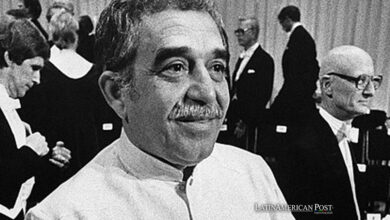The 5 soccer rules that almost nobody knows
Listen this article
What happens if a player refuses to be substituted? Here this and four other curious and little known soccer rules

In the world of soccer, it is common for fans to know rules such as offside, but there are rules that most do not know because the context to apply them is very unlikely. For example, the past month of February happened the controversy in which the Chelsea goalkeeper, Kepa, refused to leave when his coach Maurizio Sarri asked for a substitution. For some, the unusual thing was that the referee did not forced Kepa to leave the field, even if his assistant had already put the substitution on the board. In LatinAmerican Post we explain why he did not come out and other unknown rules.
Leer en español: Las 5 reglas del fútbol que casi nadie conoce
Refuse to leave
The reason why Kepa was able to stay in the game is that the arbitration regulation states that "If a player who will be replaced refuses to leave the field, the match will continue," according to the newspaper Marca. Thus, if a player refuses to leave for any reason, the rule will allow him to continue playing. Nevertheless, it is in the hands of the club if it sanctions the soccer player, as Kepa was punished by Chelsea with the suspension of one week of his salary (225,000 euros), but without removing him from any game, according to the Sport newspaper.
TREMENDO lo que se acaba de vivir en la final de la Carabao Cup.Kepa con molestias.Sarri manda a la cancha a Caballero, pero Kepa se niega a salir y Caballero va a sentarse.Sarri estalla y amaga con irse de la cancha. Finalmente se queda y deja a Kepa. Man City campeón en penales pic.twitter.com/OBPkIo2GFI
— Juez Central (@Juezcentral) 24 de febrero de 2019
Extra people on the field when scoring a goal
If at the time of scoring a goal there is an unauthorized person on the field (substitute, coaching staff, ejected player), the referee may cancel the goal if this person was from the team that scored and sanction with a goal kick, a corner or a dropped ball. On the other hand, if the person on the field belongs to the club that received the goal, the goal will be added to the scoreboard. In case he is a fan that has not interfered in the goal, it will not be canceled and the game will continue, according to the IFAB, governing body of the rules of world soccer.
It may interest you: Do you think being a referee is easy? This is what it takes to become one
From own goal to corner kick
In the event that the player of a team gives a direct free kick to his goalkeeper, but the ball ends entering the goal, the goal will not be validated as long as no player of the team has touched the ball after the foul has been kicked. In turn, the referee must declare a corner kick. This happened in a Second Division B match in Spain, when Atlético Levante claimed a foul that ended up in their goal without anyone touching the ball. However, the referee declared a goal and in the minutes after the meeting said that it was an own goal, since the goalkeeper had touched it, according to La Vanguardia.
Seconds after a penalty
Another norm of the regulation establishes that, if a player charges a penalty and the ball hits the post and does not touch any other player, the kicker will not be able to finish the penalty again; if he does, a free kick will be called against him, so his teammates must take charge and try to score if they want a possible goal to go up to the scoreboard, according to the web portal of the RFEF.
Read also: Ultimate: the sport where there are no referees
Fair penalty shootout
If a match ends up in penalties, but there is a team with fewer players than the other, the club with the majority must exclude one of their players from the list of kickers, in order that both have the same number of players available to kick the penalties. Before starting the session, the captain must notify the referee of the excluded teammate, who cannot kick whatever the reason, according to Marca.
LatinAmerican Post | Juan Bacallado
Translated from "Las 5 reglas del fútbol que casi nadie conoce"





